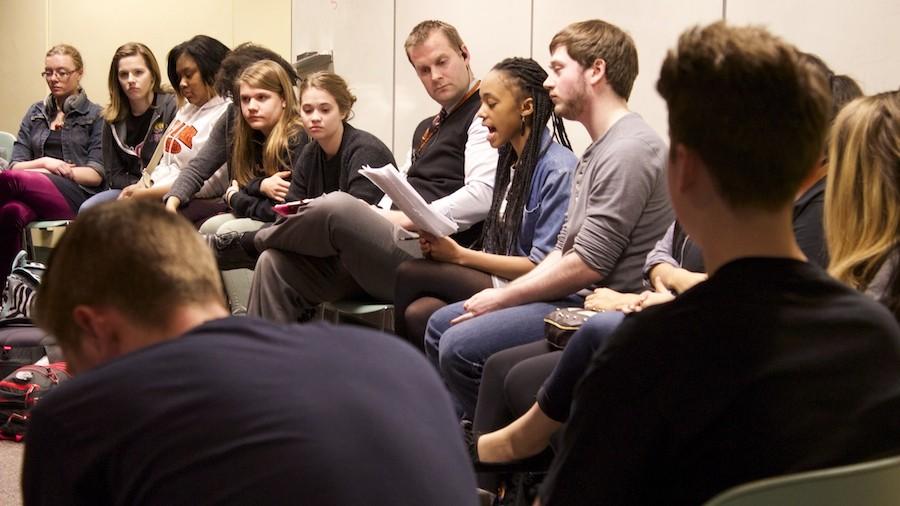Annual choir fundraiser censored
Omission of N-word in ‘Ragtime’ ignites controversy, discussion
March 13, 2015
The administration’s decision to censor the N-word from the choir musical “Ragtime” has fueled an emotional response.
According to interim principal Scott Meyers, the decision to omit the N-word from the choir musical was made last fall after consulting with African-American community members.
“We came back together probably more toward November, I believe. When we talked in November, it was decided that we probably shouldn’t use the word,” Meyers said.
Superintendent Rob Metz said he believes at that point cast members understood they could not use the N-word.
“They started out using the word ‘Negro’ as I understand it, and then it got changed to ‘boy,’ but everybody knew they couldn’t use the N-word in the dialogue,” Metz said.
Several cast members said they were not informed of the decision until much later on, showing a discrepancy between administrative and student perspectives.
Sophomore Santyne Thornton said the cast believed the N-word was to be used up until the day of the first performance.
“We practiced using the N-word, but then the day of the first performance, Mr. Meyers changed it,” he said.
Meyers said the desire not to offend audience members shaped the decision.
“People have lived it, experienced it, and don’t necessarily feel like they need to experience the word to know what it means,” Meyers said.
Students responded strongly to the decision to remove the N-word. A public service announcement (PSA) read before the show voiced the cast’s disagreement with the censorship. However, the administration decided to censor the content of the PSA as well.
Metz said he told writer senior Amira Warren-Yearby to remove one part of the announcement he felt unnecessary.
“There was one line in there that I thought was inappropriate, I thought it was mean, and I bumped into a student who had a hand in writing it and suggested that they change that line,” Metz said.
With censorship focusing on one racial slur, some students felt as though their own cultures and beliefs were devalued.
Junior Ethan Fogel said he was offended by the decision to censor the N-word but leave in place other derogatory slurs.
“As a Jewish person, the fact that there are slurs left in for Jewish people and the other word (N-word) is censored makes me feel as if my history as a Jewish person is less important and not as respected,” Fogel said.
Metz said he thinks the N-word alone was censored because it had the strongest potential to upset viewers.
“I think in today’s society it rises above the rest as a word that could cause misunderstanding and conflict,” Metz said.
Choir director John Myszkowski declined to comment for this sto




